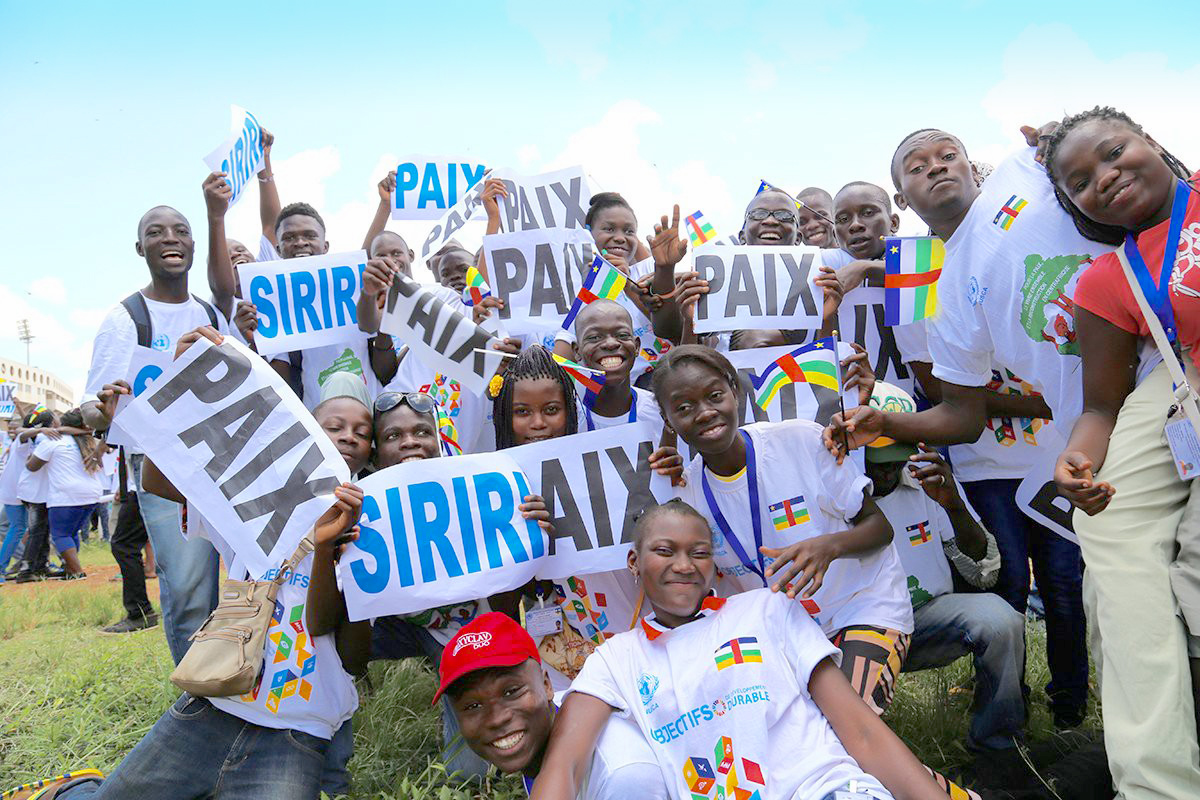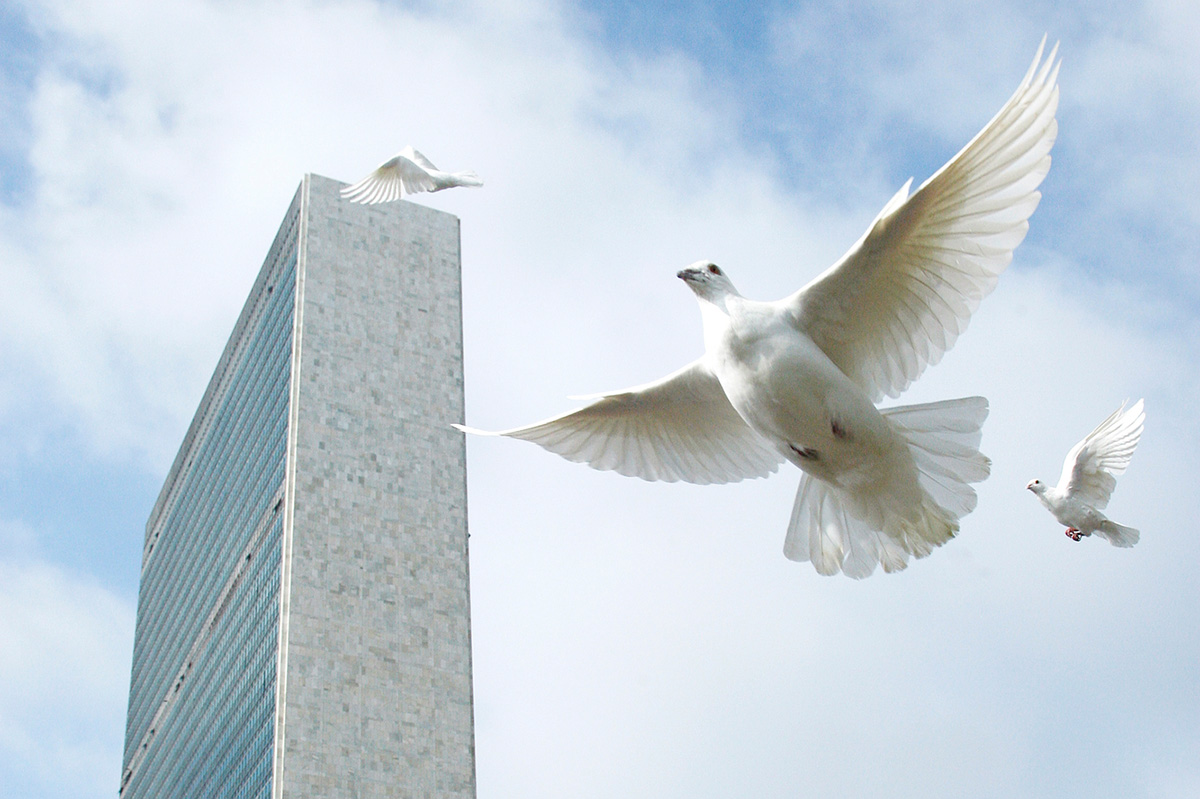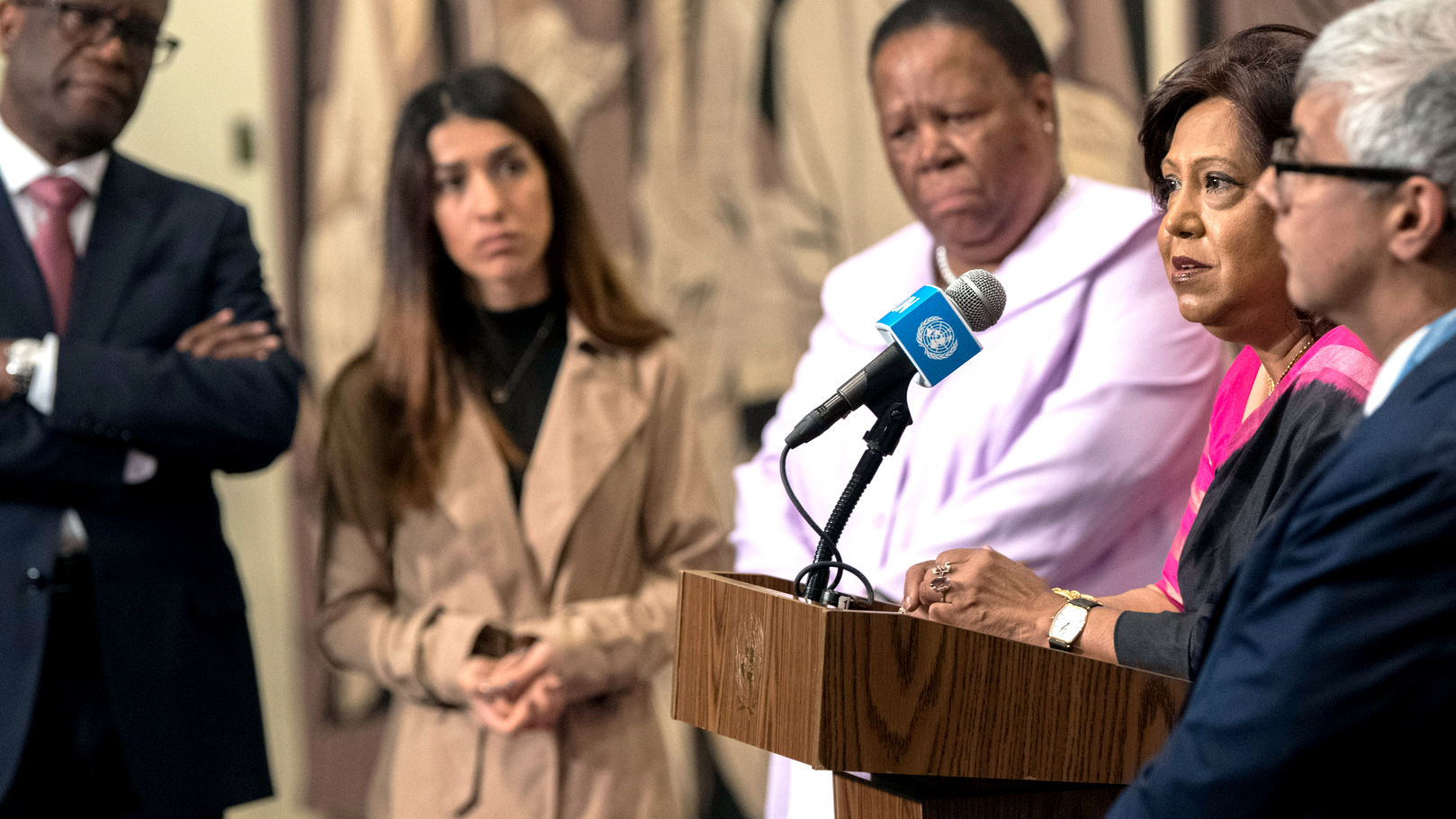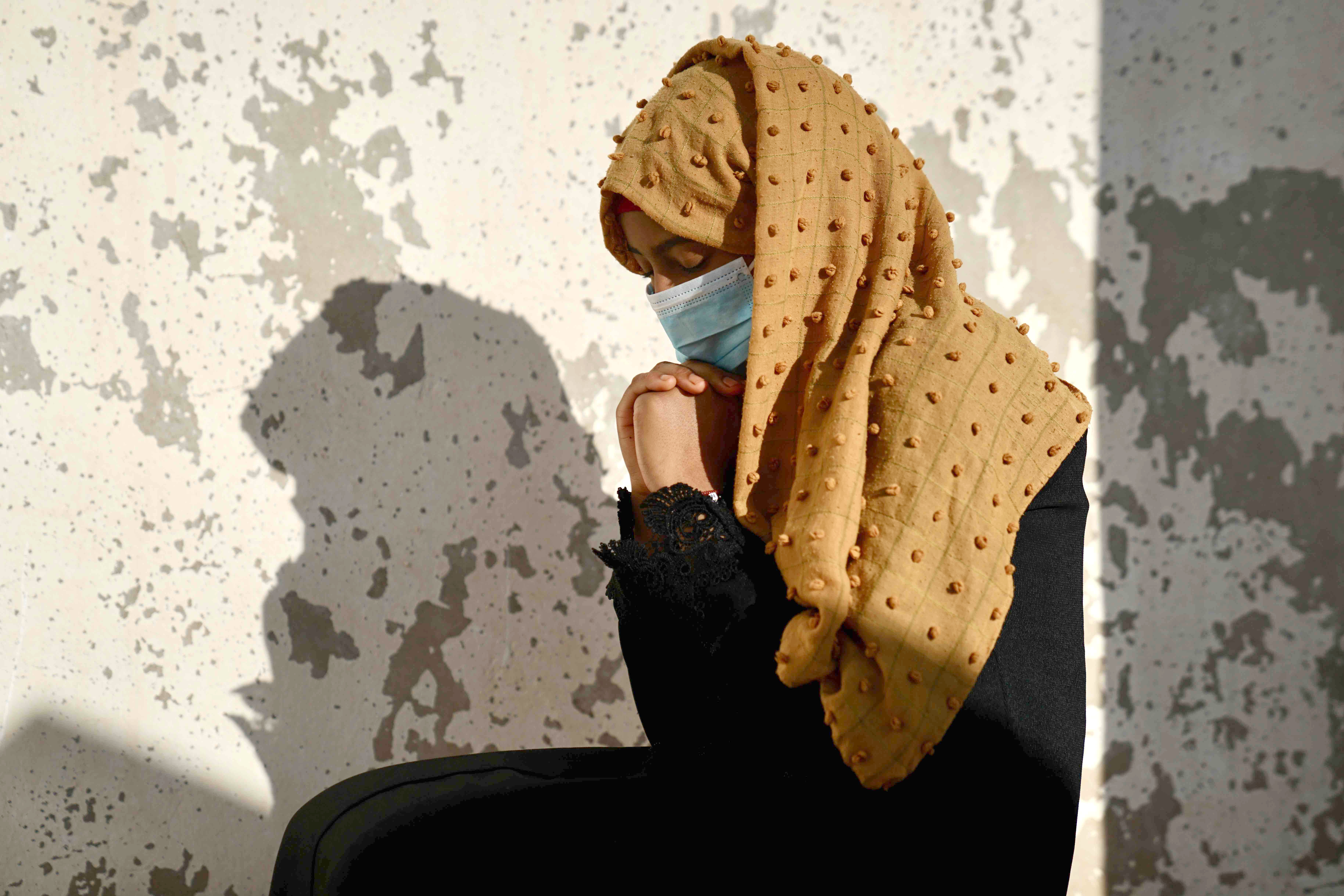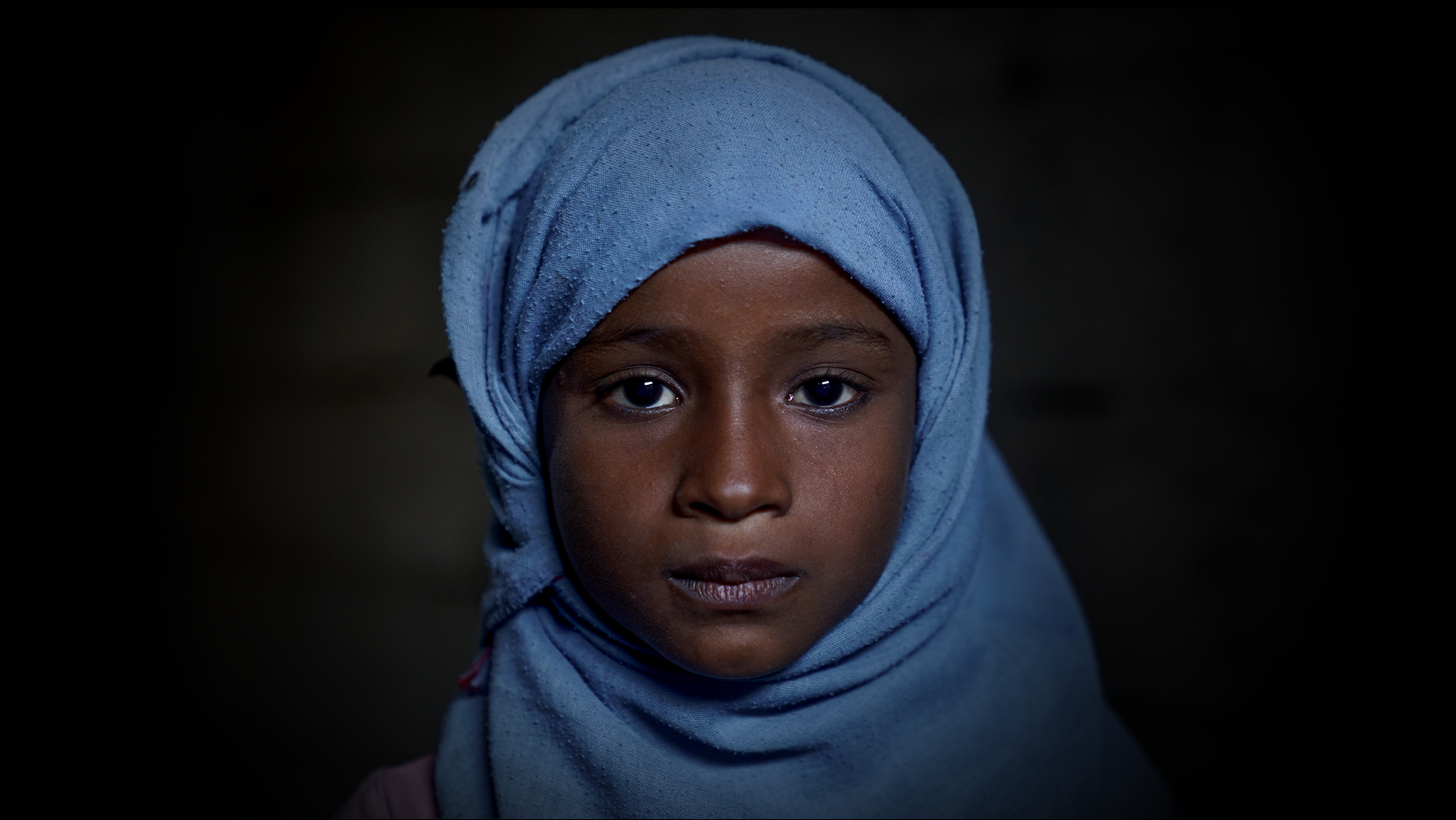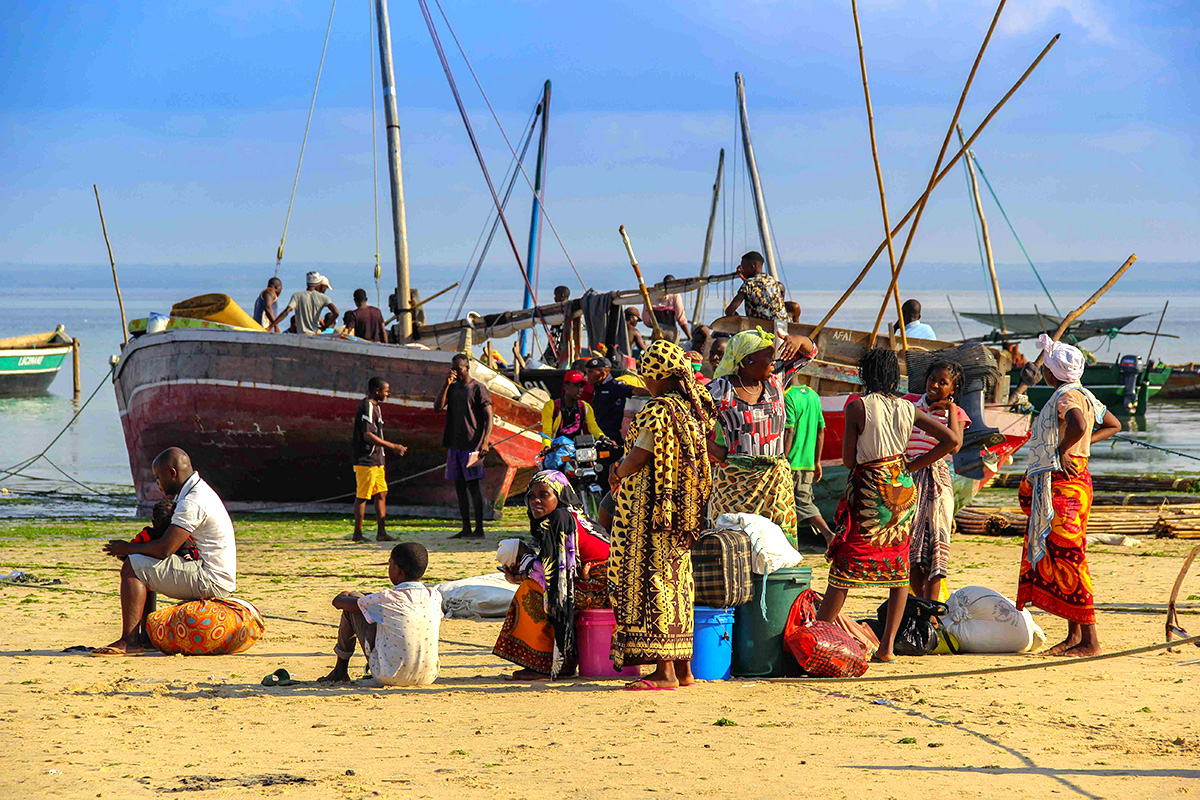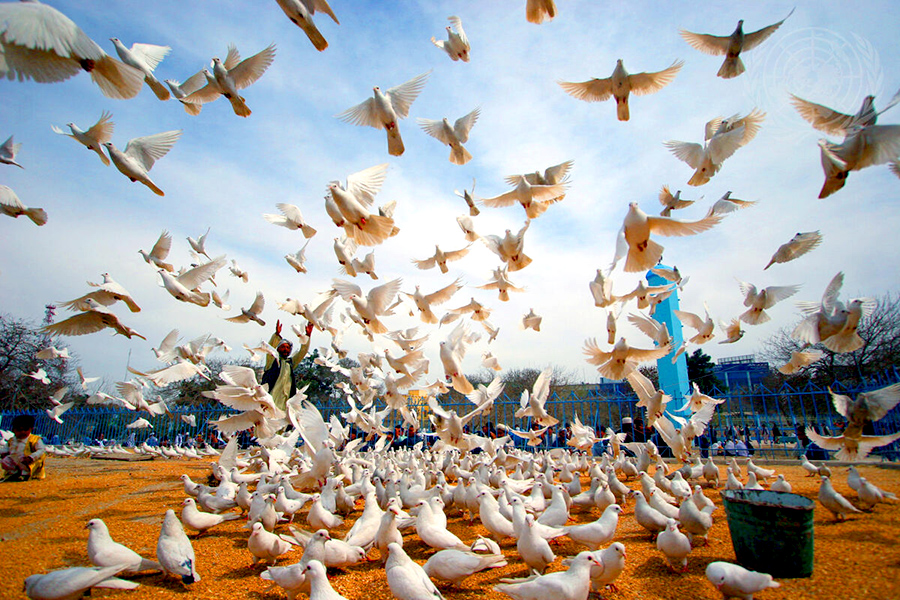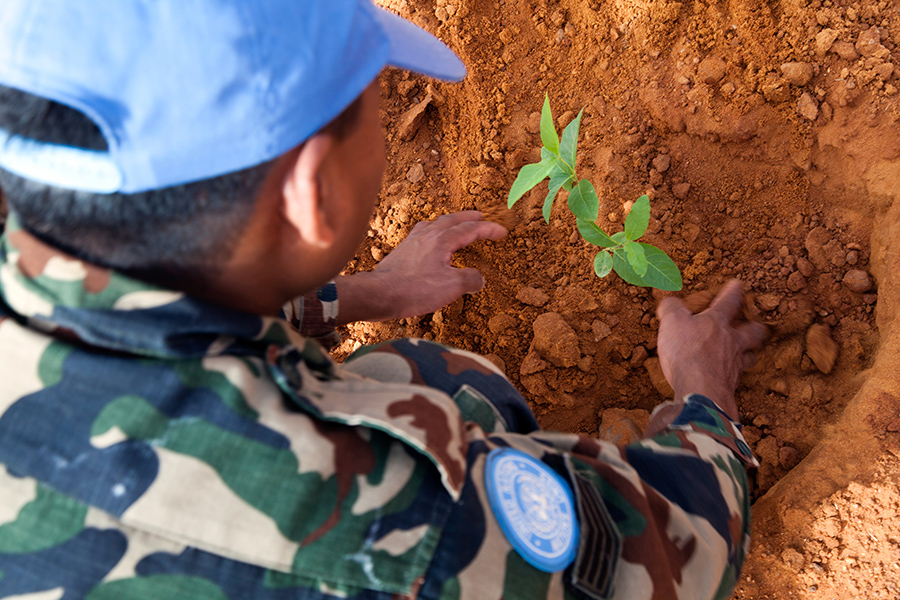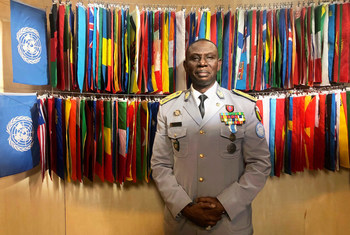Engaging young people in peace efforts provides an opportunity to constructively influence areas that directly impact their lives. This year’s International Day of UN Peacekeepers (29 May): “The road to a lasting peace: Leveraging the power of youth for peace and security,” recognizes the significant role of youth in shaping and sustaining peace efforts. Today, tens of thousands of young peacekeepers (between the ages of 18 and 29 years) are deployed around the world and play a major role in helping the missions including in the protection of civilians. #YouthPeaceSecurity #Youth4Peace
Peace and Security
An estimated 160,000 people in Gaza now face going hungry as the escalation of violence in the Occupied Palestinian Territory, and across the border into Israel, continues into its second week, the UN World Food Programme (WFP) said on Tuesday.
In addition to seeing that they get enough to eat, another priority for the agency’s Country Director in Palestine, Samer AbdelJaber, is making sure that his aid team stays safe, as he explains to UN News’s Daniel Johnson.
The United Nations declared 8 & 9 May as a time of remembrance and reconciliation to pay tribute to the millions of people who lost their lives in the Second World War, and to remember their sacrifices. As part of the legacy of this historic event, the UN was created to save succeeding generations from the scourge of war. Since then, the United Nations continues to play a central role in efforts to settle disputes by peaceful means in conformity with the Charter of the United Nations. The protection of international peace and security remains one of the main pillars of the Organization.
“I returned from Bangladesh...and sent all of my dresses for dry cleaning. I have not worn these dresses again. I can't wear them. There's too much pain...because I came out and I was wet with all the women crying. I like to open the wardrobe and remind myself of the survivors at all times. They are my moral compass and I have to keep fighting for them. This is what keeps me going.”
In this episode of Awake at night, we meet Pramila Patten, the Secretary General's Special Representative on Sexual Violence in Conflict whose work aims to end rape as a weapon of war, making it a crime that is both preventable and punishable. Pramila travels the world to meet survivors, carrying back the harrowing stories they entrust her to retell. She then advocates tirelessly on their behalf for accountability and justice.
"When you talk to Yazidi women, they tell you they want justice and reparations, in addition to support services [...] Whether it is Iraq [...] Nigeria [...] Somalia or Sudan, they tell you they want to have their day in court. And for me, that is very frustrating that so far, for example, where sexual violence is used as a tactic of terrorism, no single person belonging to Boko Haram or ISIS has been prosecuted for sexual violence. They are getting prosecuted under the counter terrorism legislation, but not for sexual violence. And that is a frustration."
In war-torn Yemen, women are often the first victims
Angam, 7, has six brothers and sisters. She stopped going to school, because her family cannot afford schoolbooks, bags and uniforms. This portrait series was photographed in south Yemen in late 2020 by photographer Giles Clarke. It is the result of years of work documenting Yemen and the lives of those affected by the ongoing humanitarian crisis. It highlights the resilience, strength and hope of the Yemeni people. They fled violence in search of safety. They lost their homes, family members, friends, neighbours. They live in makeshift shelters, not knowing when they'll be able to return home.
For 20 years, UN special political missions in Guinea-Bissau contributed to national efforts for peace and democratic consolidation, effective rule of law, the promotion and protection of human rights and gender mainstreaming, as well as the fight against drug trafficking and organized crime. Now, that phase of UN support is in transition. The UN Integrated Peacebuilding Office in Guinea-Bissau (UNIOGBIS) held a ceremony in Bissau on 11 December 2020 to mark the closure of the mission. Shown is a mural in the old town of Bafata, Guinea-Bissau.
On March 23rd, Secretary-General Antonio Guterres issued an urgent appeal for a global ceasefire to all corners of the world to focus together on defeating COVID-19. He repeated the call at the start of the 75th UN General Assembly session in September, to achieve the ceasefire by the end of the year. Since March, some 180 countries, the Security Council, regional organizations, civil society groups, peace advocates and millions of global citizens have endorsed the Secretary-General’s call. The clock is ticking and there is no time to waste. Get involved and sign the urgent call to support!
Natural resources and the environment hold tremendous peacebuilding potential. From economic recovery and government revenues to sustainable livelihoods and the restoration of basic services, the way natural resources are managed and governed can either fundamentally support or undermine peacebuilding objectives. The United Nations strives to ensure that action on the environment is part of conflict prevention, peacekeeping and peacebuilding strategies. There can be no durable peace if the natural resources that sustain livelihoods and ecosystems are destroyed.
The recent sentencing of militia members in the Central African Republic for the 2017 killing of civilians and peacekeepers, has sent a strong message that impunity will not be tolerated.
The United Nations came into being in 1945, following the devastation of the Second World War, with one central mission: the maintenance of international peace and security.

